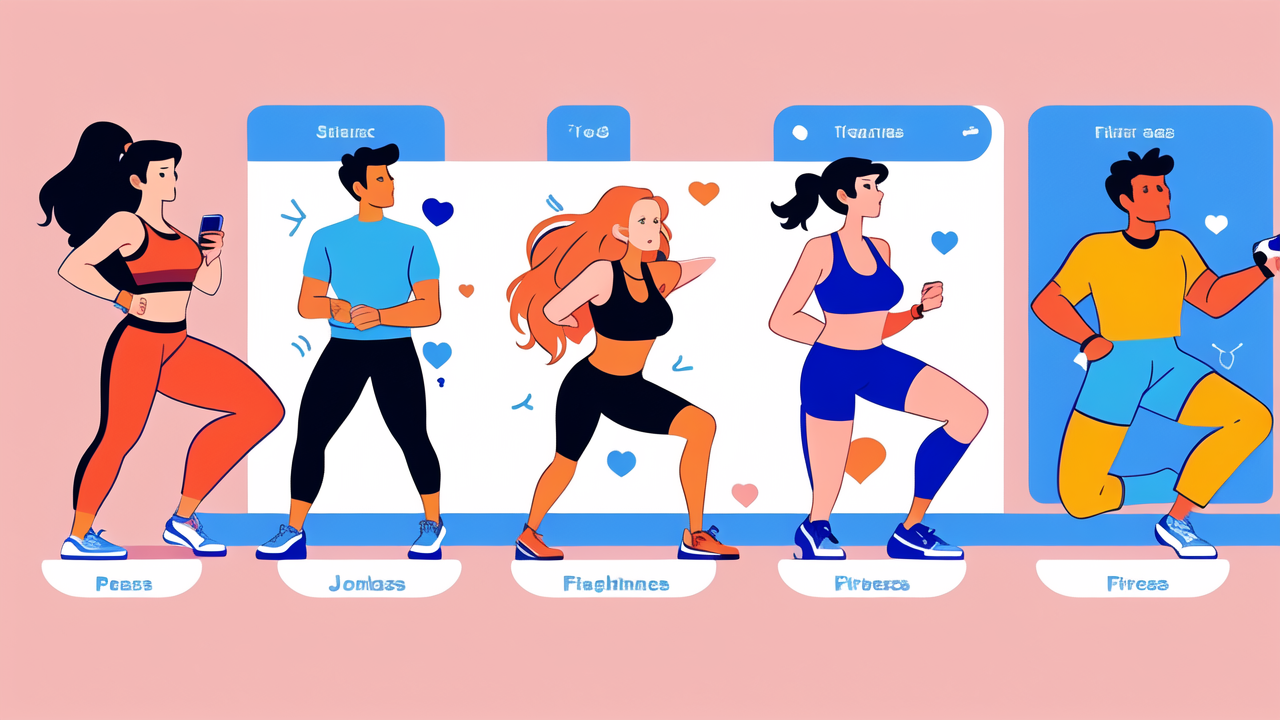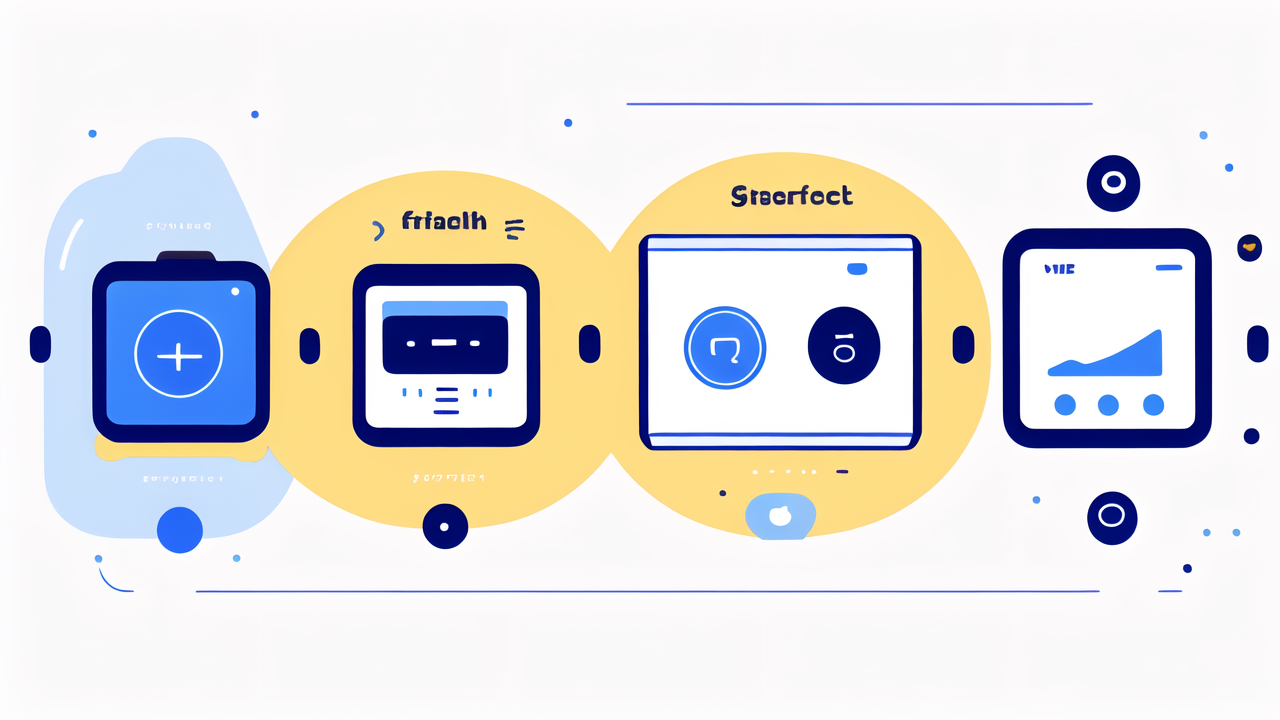The Rise of Activity Trackers in Modern Fitness Regimes
Understanding the Evolution of Fitness Wearables
Fitness wearables have come a long way since their early days. They started as simple step counters. Now, they're advanced devices that track various health metrics. The first Fitbit launched in 2009. It marked the start of a new era in fitness tracking.

Over time, these devices have become more sophisticated. They can now monitor heart rate, sleep patterns, and even stress levels. The evolution has been rapid and impressive. Early models only counted steps. Today's trackers use complex sensors and algorithms.
They provide detailed insights into our physical activities. This progress has made them essential for many people. Fitness enthusiasts and health-conscious individuals rely on them daily. The technology keeps improving, offering more features and better accuracy.
The Role of Activity Trackers in Personalized Fitness Programs
Activity trackers have changed how we approach fitness. They offer real-time data on our physical activity. This information helps users set and achieve fitness goals. Trackers monitor steps, calories burned, and distance traveled. They also keep an eye on sleep quality and heart rate.
This data is valuable for personal fitness programs. Trainers can create better workout plans with accurate information. Users can adjust their routines for optimal results. Activity trackers keep people motivated. They show progress over time, which is encouraging.
These devices have become key tools for health improvement. They help users understand their bodies better. This leads to more effective workouts and healthier lifestyles. The personalized data makes fitness feel more achievable and enjoyable.
Analyzing the Surge in Activity Tracker Adoption Rates
More and more people are using activity trackers. In 2015, only 20% of Americans had one. By 2020, that number jumped to over 40%. Why such a big increase? There are several reasons. People are more aware of health issues now. They want to keep track of their physical activity.
The technology has improved too. Trackers are more accurate and easier to use. They have appealing features that attract many people. Prices have come down as well. You can find good, affordable options now. The COVID-19 pandemic also played a role. It made people focus more on personal health tracking.
Trackers are no longer just for athletes. Regular folks use them to stay healthy. The trend shows no signs of slowing down. As the technology improves, even more people are likely to start using these devices.
Smart Watches and the Health Revolution: A Closer Look at Their Impact
The Integration of Smart Technology in Daily Fitness Regimes
Smart watches have become a big part of daily fitness routines. They do more than just track steps. These devices can monitor heart rate and blood oxygen levels. Some even perform ECG readings. They provide feedback during workouts. This helps users exercise at the right intensity.

Many smart watches have GPS functionality. This is great for runners and cyclists. They can map routes and track their speed. Some watches offer guided workouts. These features make it easier to stick to fitness goals. Smart watches also connect to smartphones. This allows users to analyze their data easily.
The technology in these watches keeps advancing. They're becoming like personal trainers on your wrist. From reminding you to move to tracking your progress, they're always there to help. This constant support makes staying fit much easier for many people.
How Smart Watches are Shaping the Fitness Industry
Smart watches are changing the fitness world in big ways. They're altering how people approach workouts. Gyms are adapting to this new technology. Many now allow you to connect your watch to their machines. This provides a more personal and data-driven workout experience.
Personal trainers are using smart watch data too. It helps them create more effective training plans. The fitness app market has grown a lot because of smart watches. New apps are constantly being developed. These work with the watches to offer more features. It's created a whole new sector within the fitness industry.
Smart watches are making fitness more accessible. They give people the tools to manage their own health. This is changing how we think about exercise and wellness. The fitness industry is becoming more technology-focused as a result.
Case Studies: Success Stories of Fitness Enhancement through Smart Watches
Many people have improved their health using smart watches. Take Sarah, for example. She's 35 and works in an office. Her smart watch helped her move more each day. In six months, she lost 20 pounds. Her heart health got better too. The watch reminded her to stay active throughout the day.
Then there's John, who's 50. He had high blood pressure. His smart watch noticed irregular heart rhythms. This led to an early diagnosis of a heart problem. Thanks to the watch, he got treatment quickly. These stories show how smart watches can really help people's health.
Smart watches have helped athletes too. One runner used her watch to perfect her pacing. She set a personal best in her next marathon. These devices are proving valuable for all kinds of fitness goals. From weight loss to serious training, they're making a real difference.
Challenges and Opportunities in the Activity Tracker Market
Navigating the Competitive Landscape of Fitness Wearables
The fitness wearable market is very competitive. Big names like Fitbit, Apple, and Garmin lead the pack. But new companies keep joining in. This competition drives innovation. It also improves product quality. Companies must keep updating their products to stay relevant.

Standing out is key in this busy market. Some brands focus on advanced health features. Others target specific groups or activities. Prices range from budget-friendly to high-end. The challenge for companies is finding their niche. They need to offer something unique to attract customers.
This competitive landscape benefits consumers. It leads to better products and more choices. Companies are always trying to come up with the next big thing. This push for innovation keeps the market exciting and dynamic.
Addressing Data Accuracy and User Engagement
Data accuracy is a big concern in the activity tracker market. People rely on these devices for health info. Wrong data can lead to bad fitness choices. Companies are working hard to improve their sensors. They're also making their tracking algorithms better.
Keeping users engaged is another challenge. Many people stop using their trackers after a few months. Companies are trying to fix this. They're adding game-like features and social elements. They're also making data easier to understand and use. The goal is to keep people motivated for the long term.
Privacy is also a concern. Users want to know their health data is safe. Companies need to balance detailed tracking with data protection. As these issues are addressed, trackers will become even more trusted tools for health management.
Future Outlook: The Expansion of the Activity Tracker Market
The future looks bright for activity trackers. Experts say the global wearable tech market will grow big. It could reach $118.16 billion by 2028. This growth will come from several factors. Better sensors will improve accuracy. AI integration will give more personal insights.
New types of trackers are coming too. Smart clothing and rings are becoming popular. These might be more comfortable and less noticeable than watches. The focus is shifting to overall health tracking. Future devices may check mental health and nutrition too. They might even track environmental factors.
As tech gets better, these devices will be even more important for health. They'll likely connect more with healthcare systems. This could change how we manage our health. Activity trackers are set to play a big role in the future of wellness and healthcare.




Leave a comment
This site is protected by hCaptcha and the hCaptcha Privacy Policy and Terms of Service apply.